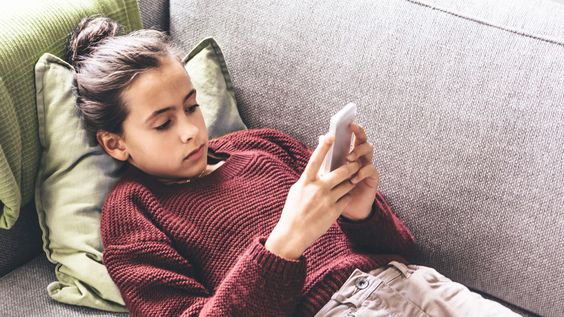
The public has never spent more time indoors than they have been asked to in the past year. The coronavirus pandemic has forced us to entertain ourselves at home with what we have. For most people, this will likely be their mobile phone.
One survey suggests the average mobile screen time in the UK is 3 hours and 23 minutes every day. But, for younger people, this time rises significantly. For 16-year-olds, average screen time sat at a staggering four hours per day. This means that young people are spending around 27 per cent of their waking hours on their mobile phones, with 67 per cent of respondents at this age saying that browsing social media is the main reason for going on their phone.
For young people, the need to take part in adrenaline-fuelled activities is long overdue. With the vaccine drive clearing an exit to the pandemic, now is the time to start looking at a different kind of adventure holiday that can be used as a social media detox. To celebrate the annual Children’s Mental Health Week, we look at the damaging effects of social media, and what activities we could plan in the future to help keep our phones away.
How does social media affect me?
Social media can have a detrimental effect on our mental health, especially for younger people who use these applications more often. They can cause anxiety, depression, and isolation. The chemical dopamine is released into our brains every time we get a notification or like, stimulating us in the same way that drugs, food, and gambling can create a happy sensation. It is addictive. This short-term happy feeling is negative over the long term though, as our reliance on dopamine increases, we increase our use of social media. It becomes a vicious cycle where we can only get satisfaction from our phones.
We can achieve this satisfaction through good diet, education, exercise, and social interaction. While some of these aspects of life are limited by current coronavirus restrictions, we can seek out other positive alternatives and plan for when life returns to normal.
Adventure and education
If young people spend four hours on their phones per day, over the course of one year they will spend more than 60 days looking down at a screen. The opportunities and activities that could be completed in this time highlights the need to motivate young people to do something different.
An adventure holiday could be a significant investment for young people looking to escape the humdrum of life after the pandemic, where a 16-year-old can train to become a ski instructor in Austria. Education and exercise are key to releasing the dopamine that our phones have made us reliant on. Adventure holidays release this adrenaline while supporting the development of leadership, new skills, and healthy activity.
You can begin preparation for this adventure by starting exercise today. Skiing requires good overall fitness, particularly in leg strength. Despite gyms being closed, running, cycling, or improvising workouts at home can help keep young people’s phones away. Exercise also releases chemicals called endorphins. These relieve pain and reduce anxiety. Anxiety is often attributed to the role of social media in young people’s lives. Added to uncertainty surrounding the coronavirus, exercise could be the perfect remedy, with targets set on an adventure holiday when it is over.
Interaction and reaction
Social media is not a cure for the lack of social interactions. Though we’re currently limited, young people should be encouraged to keep in contact with their friends. Video calls are healthy ways to see someone face to face, albeit distanced. Real verbal communication cannot be practised on social media, while talking even over the phone can help reduce anxiety and alleviate the burden of loneliness during restrictions.
While we use our phones as the windows to the world, we are aware of the struggles of people less fortunate than ourselves during this adverse period. Volunteering is a positive alternative that can benefit from your attention. The Office for National Statistics measures that Brits spend about one hour and seven minutes every day completing some form of unpaid work. This is almost one-quarter of the time young people spend on their phones. Right now, there are opportunities across the country to volunteer, whether shopping for the elderly or helping your neighbours. These can be done with social distancing and are great ways to help out, feel better about yourself, and make a real difference — something that cannot be easily achieved using social media.
We all need to look after our mental health. Whether you are a young person or know a young person who should be encouraged to use social media less, there is no shortage of positive alternatives that can make a personal or societal difference. Whether you plan for a great adventure holiday or find a way to help out in your community, ditching social media is the best way to start.
